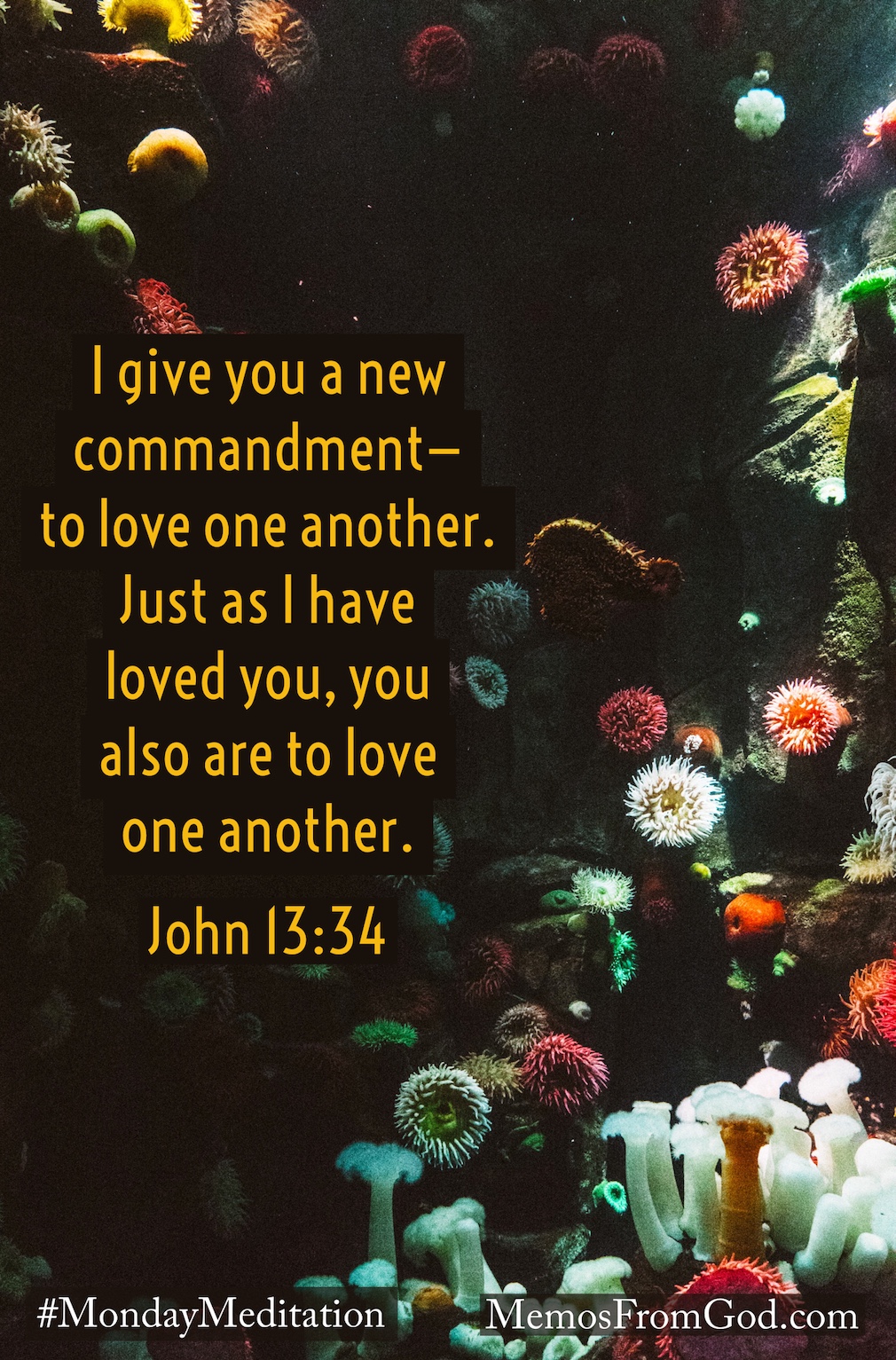

Attempting to Understand the Bible





Today we begin a new series on love. Over the next few months, I hope you will see how important it is.



Long-time readers of this blog will know that Rusty Wright has contributed many articles to it over the years. Some have been co-written by his wife Meg Korpi. I was very sad to learn that Meg has passed away after suffering with cancer for the last few years. Today's post is a tribute to her, written by Rusty, and shared with permission.
---------

Recently, when my wife, Meg Korpi, was dying of cancer, a longtime friend offered some advice I'm really glad I heeded.
"Hutch" Hutchins told me I should write a tribute, expressing what she's meant to me and how much I love her. I should frame it, give it to her, and read it to her personally.
Meg was on home hospice care after a three-and-a-half-year struggle with ovarian cancer. I was her primary caregiver – a demanding, 24/7 responsibility – and was reeling with exhaustion. But his advice clicked. I read the tribute to her on May 21, our 16th anniversary.
It had a very positive effect…calming, soothing. She seemed at peace, contented, with brightened spirits. It was one of her last lucid days before dying a month later.
Tribute to a rare jewel
Meg was a rare jewel. In her wedding vows, she had said she wanted me to feel like "the most blessed man alive to be married to" her. I did. In this tribute, I told her that in her, God gave me:
• A gorgeous bundle of fun, adventure, character, and faith
• A godly woman who walks closely with Him
• A faithful friend – my very best friend – and companion
• A keen mind to help me think through life's sometimes perplexing issues
• A wise counselor with sound advice at crucial junctures
• A determined spirit to prompt me to reconsider my course when needed
• A sweet lover (Whew!)
• A fun woman, whose sense of humor brings delight. I love to laugh with you!
Thank you so, so much for loving me unconditionally; for honoring and respecting me; for caring and encouraging; for listening to my heart; for sharing my joys and hurts; for looking out for my interests; for being there through good times and bad; for facing life with me as long as we both shall live.
I love you very much, and am eternally grateful to be your husband.
* * *
Lots of laughter
We loved to laugh. As world travelers, sometimes we laughed about language translation complexities.
60 Minutes television veteran Mike Wallace, speaking through an interpreter, once asked former Russian president Boris Yeltsin if he weren't being a bit "thin skinned" in his sensitivity to media criticism. The interpreter goofed, telling Yeltsin that Wallace had said, "You are a thick-skinned hippopotamus."
Shortly after we married, a speaker at a Miami meeting I attended told of efforts to translate a biblical love poem into the language of a Kenyan tribe. The phrase, "Your beauty is like that of the lily," did not connect with the rural East Africans, for whom lilies were mere cattle fodder. Their culture highly esteemed the cow, not the flower. On the advice of tribesmen, the translators rendered the romantic phrase: "You are a black cow in a herd of spotted cattle."
The speaker relating this tale suggested I use that compliment on my new bride, without explanation. Since Meg was returning to California from Philadelphia that evening, I left the cryptic greeting on our home answering machine. A few hours later, my Miami phone rang. Her first words: "And you are a thick-skinned hippopotamus!"
Most important lesson
At her memorial celebration, I presented all this, then briefly noted a conviction we shared deeply, the most important thing I’ve ever learned. I'm indebted in many ways to my Jewish friends and their heritage for it.
One ancient Hebrew book describes Job, who, despite his slew of troubles, affirmed, "I know that my Redeemer lives." (Job 19:25) That gave him hope.
A skeptic in my youth, I didn't believe my Redeemer lived. I thought it was a fairy tale. Then, my first year at Duke, I heard a lecture about Jesus' Resurrection evidences, given by Bob Prall, who later became my mentor. Jesus was executed and declared dead, wrapped like a mummy, placed in a tomb. A huge stone covered the tomb's entrance, which Roman soldiers guarded. Most of his disciples fled in fear.
Sunday morning, the stone was rolled away, the tomb was empty, but the grave clothes were still in place. Jesus appeared alive. Frightened disciples became martyrs because they believed he had risen.
Attempts to explain this away didn't work for me. The guard was too powerful, the stone too heavy, the disciples too timid. I realized it was true. Jesus had successfully predicted his own Resurrection. If I could trust him in areas like this where I could test him, I had grounds for trusting him in areas where I couldn't test him, such as eternal life and how to obtain it. He said, "I am the resurrection and the life. The one who believes in me will live, even though they die." (John 11:25)
Comforting? True?
Is it comforting to me that I'll see Meg again and spend eternity with God? Absolutely. But it's only comforting because I believe the evidence indicates it's also true. If it weren't true, it wouldn't be comforting.
I realize this is a controversial subject, and you may not agree. If you've not examined the Resurrection evidences, may Meg and I gently and politely encourage you to take a look? Lots of good books and websites present them. Our own site – which Meg designed and built – also presents them. RustyWright.com
We know our Redeemer lives. We hope you can as well.
And…I love you, Sweetheart.
* * *
You can visit Lasting Memories for more on this remarkable woman, including a lovely 5½ - minute memorial presentation of Meg's life (images and music; put together by several family members).
Rusty Wright is an author and lecturer who has spoken on six continents. He holds Bachelor of Science (psychology) and Master of Theology degrees from Duke and Oxford universities, respectively. www.RustyWright.com
Today is Ash Wednesday, the beginning of Lent. Traditionally people give things up for the forty days before Easter, but I want you to get something instead. I want you to get closer to Jesus, to become more familiar with God's Word, to feel more of his love. (Coincidentally, that is the purpose of fasting too. Every time you refrain from indulging in the luxury that you usually have, it makes you think of why you are doing it, and makes you thankful for Christ's sacrifice for you.)
In previous posts, I have talked about reading plans, and how following them can bog us down and make us feel guilty when we don't keep up. This is especially true if your goal is to start in Genesis and read through the Bible in one year. A lot of people never make it through Leviticus. However, I have also constantly said--and it's the whole reason this blog post exists--that we need to read more of God's Word. We don't have to do it in a particular order, or at a particular rate, we just have to do it more.
What I am proposing to you today is kind of a compromise between those two options. Today I received an e-mail from Margaret Feinberg. She and a few others have joined together to do the #LentChallenge. The challenge is to read the four gospels--Matthew, Mark, Luke and John--during Lent. That's 89 chapters in 40 days (Sundays aren't counted in the fasting schedule), so just over two chapters a day. If you think that's more than you can do, aim to read through one of the gospels. Pick whichever one you like best, for whatever reason. Just spend some time reading about, thinking about, praying about the life of Jesus. Once you understand his purpose for coming to Earth, and his reason for going to the cross, you will be overwhelmed by how much he loves you. If you do this, Easter will become more meaningful than you've ever imagined.
Margaret has a reading plan that she'll send you if you sign up for the RSS feed at her site. Or, if you have the YouVersion app, you can search for a plan that suits you, using the keyword "Lent" or "gospels". YouVersion has a plan that will take you through all four gospels in 30 days, so you will have a few days of grace if you choose that one, and the app makes it easy to catch up. I am currently using YouVersion's chronological plan for reading the Bible through in a year (no I didn't start in January), and I just happened to reach the beginning of the gospels yesterday. (It's day 274.) Since it's chronological, I'll be alternating between the gospels as I go, but I should arrive at the same destination just at the right time. Whatever plan you use, my challenge to you is to make reading the gospels during Lent your goal. If you would like to share with others who are doing the same, use the hashtag #LentChallenge.
May you be filled with God's unfathomable love this Easter season.
Today's post was written by Rusty Wright.
---------
Want an alluring love story for your Valentine's Day movie date? US filmgoers have distinct options this season.
Much-discussed Fifty Shades of Grey is based on the erotic novel that's drawn countless bookclubbers into lip-biting, toe-curling ecstasy. Trailers promise mystery, pleasure, bondage, and pain.
Old Fashioned takes, shall we say, a somewhat different approach. Boy meets girl. Attraction is mutual, but they focus on romance with respect, even chivalry. Both have painful pasts that influence their feelings and decisions. Each struggles to know the other and to discover whether they should forge a future together.
"Girls Gone Wild"
In Old Fashioned, writer/director Rik Swartzwelder plays Clay, a former party animal who produced "Girls Gone Wild"-style videos, but eventually wearied of empty and broken relationships. He's determined to treat women with respect and honor, patiently wait, focus on head and heart before body. A nice guy who occasionally hides behind sometimes quirky relationship rules to protect himself from vulnerability and pain.
Enter Amber (Elizabeth Ann Roberts), a free spirit who rents the apartment above Clay's antique shop, then creates repair needs as excuses to spend time with her cute landlord/handyman. Surprised and puzzled by his platonic convictions, she longs to explore his mind and heart, but meets resistance. Her persistence plus a friend's intervention start them courting.
Navigating relationship complexities
The film traces two wounded souls navigating relationship complexities. Turns out Clay's profligate-to-platonic transformation involved a Bible, a gift from a former love interest. Amber asks about his favorite parts of the book. Clay refers to an assertion about life change: "Anyone who belongs to Christ has become a new person. The old life is gone; a new life has begun!" (II Corinthians 5:17)
"Don't...tell me you found Jesus?" asks a skeptical Amber on another occasion. "More like he found me," explains Clay.
Sex, of course, is a powerful drive, as Fifty Shades' popularity attests. But so is love. Who doesn't want to be accepted, understood, cherished, affirmed? Old Fashioned touches these deep human desires and presents realistic portrayals of people with whom you might identify, seeking – and finding – genuine fulfillment. And its precepts offer sound counsel.
Sound counsel
"When did treating women with respect become the joke?" asks Clay in the film. He values building his own character over happy hunting.
I'll second that. Certainly evaluating prospective mates is important. But often people focus more on finding the right person than on becoming the right person. A good question for singles seeking a meaningful relationship: "How can I become the kind of person that the kind of person I want to marry…would want to marry?"
Unusual behavior?
In the run-up to both films' Valentine's weekend openings, Old Fashioned promoters played off the contrast with Fifty Shades. The latter received an "R" rating for several elements including "some unusual behavior." A clever OF trailer invites moviegoers to "leave the door open as two souls take the time to discover…[not] manipulation [but] healing" in "a love story that most only dream of."
"The wheels of Old Fashioned were in motion long before the Fifty Shades book got to Hollywood," Swartzwelder explains. "We didn't create our film in response to any other specific book or film, at all … but the decision to hold-off on our release so it could open alongside Fifty Shades? Yes, that was indeed deliberate." He sees his film as remedy: "Think of a young woman you care about … which love story would you wish for her?"
As the OF tagline reads, "Love is…patient, love is…kind, love is…old fashioned." Yes. And very, very nice.
---------
Rated PG-13 (USA) "for some thematic material".
Opens February 13. www.OldFashionedMovie.com
---------
Rusty Wright is an author and lecturer who has spoken on six continents. He holds Bachelor of Science (psychology) and Master of Theology degrees from Duke and Oxford universities, respectively. www.RustyWright.com